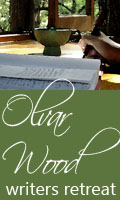
| current issue |
| archives |
| submissions |
| about us |
| contact us |
| competition |
sponsored by:
|
On Reading Lists by n a bourke | |||
|
I would like, for example, to read all of the books that have ever won the Booker, or one book from each of the Nobel Prize for Literature winners. Or, alternatively, I would like to hone my focus on Australian writing, and read each of the books that have won the Miles Franklin Award. Even before I became a (mature age) university student, I enjoyed collecting reading lists for university courses: fantasising about becoming a secret expert in gothic literature, or ancient Greek poetry. Once, I photocopied the contents pages of Harold Bloom's The Western Canon: The Books and School of the Ages At a writers festival in Byron Bay I went to see a panel about Great Literature and avidly wrote down the authors and titles each panellist declared we must read, noting with squeamish horror my secret self-congratulation at the ones I had read, and the gnawing, blushing guilt at those Greats whose spines I had never cracked. Reading lists appeal to the completist in me. I like the idea of pinning such a list to my wall, and ticking the titles off one by one. Perhaps then, rather than feeling that the job of reading everything I must and should read is Sisyphean and mysterious, I might be rewarded with a sense of achievement. Perhaps I could give myself stars for each title completed and earn a reward at the end: a star-spangled chocolate cake. Deep, rich, and eloquently sinful. Recently, the ABR (Australian Book Review) surveyed its readers, asking them to vote for the 10 Best Australian Novels ever. When the magazine arrived, it was the first page we flicked to. Curious to find out what ABR's readers thought. The first thing I did was scan the list for books I had already read: was I a good girl? A good Australian reader? Could I hold my head up high at the next writers festival, certain that I had as good a grasp of the most significant works of Australian literature as the next person? I wondered whether my own Australian Top 10 would have included the same works; which would I drop, which would I keep? At a recent writers' retreat, I asked the other writers to name the books they returned to over and again; the touchstone books that they wished they had written. Such a list changes over the years, but is a good start for a writer, who must work to stay in touch with their ambitions, with the writers who inspired them, and the books that made them want to write. I have asked my fellow editors at Perilous to compile lists of their top ten books, which I've included below. Even reading these lists I'm struck by the sense I have of desire: to read the books on their lists, to revisit the familiar and meet the unknown. Once - so long ago now it is perhaps impossible to imagine - readers lived in a world where there were only so many books; a world in which it was possible, in a mortal lifespan, to read all of the books that had been published. These days such a task would be impossible. Books are published and translated in their thousands each day. Perhaps more books come into the world each hour than newborn babies. It is not possible to read them all. Perhaps it isn't even possible to read only the books I should or your should. Instead, we must choose. Reading lists delight me because they offer one way to reduce the endless possibilities in a meaningful way. They are like guardian lights in the dark, labyrinthine stacks of the library.
SOME OTHER GRAND READING LISTS * The Lost Man Booker In 1971, just two years after it began, the Booker Prize ceased to be awarded retrospectively and became, as it is today, a prize for the best novel in the year of publication. At the same time, the date on which the award was given moved from April to November. As a result of these changes, there was whole year's gap when a wealth of fiction, published in1970, fell through the net. These books were simply never considered for the prize. Their longlist includes books which would have been eligible and are still in print and generally available today. WANT TO READ MORE? Why not join Olvar Wood onLIne's free virtual book club for writers? Click here to visit Olvar Wood onLine. * |

 I confess to being a fan of reading lists. I like the simplicity of them; the suggestion that I might be able to contain my reading, find a path through the almost endless possibilities that are presented to me when I go into the bookshop or library. When I discover a new reading list, I'm excited by the idea that I might complete it, and so come to a deeper and more satisfying understanding of at least one small corner of the literary landscape.
I confess to being a fan of reading lists. I like the simplicity of them; the suggestion that I might be able to contain my reading, find a path through the almost endless possibilities that are presented to me when I go into the bookshop or library. When I discover a new reading list, I'm excited by the idea that I might complete it, and so come to a deeper and more satisfying understanding of at least one small corner of the literary landscape.

















